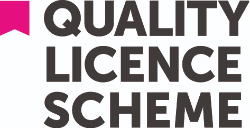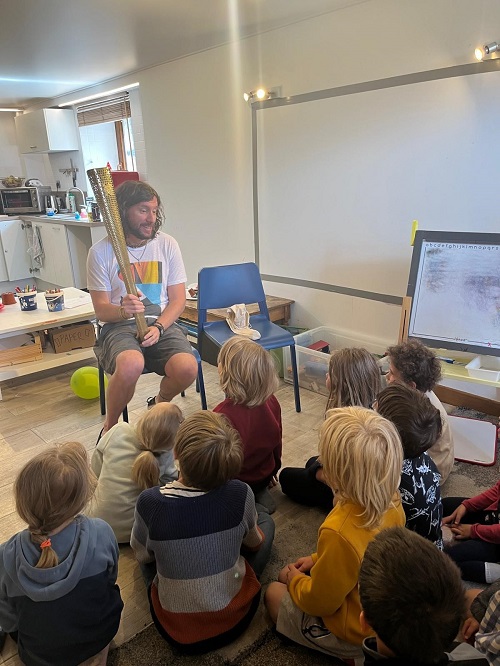Special Educational Needs (SEN) - Advanced

 79.3%
79.3%
- SALE Savings End Midnight Tuesday 17th February
- SALE Savings End Midnight Tuesday 17th February
Special Educational Needs (SEN) - Advanced
People with special educational needs have a higher chance of leading happy, fulfilling and successful lives provided they have the right support. This is why SEN education must be offered to carers, teachers, parents, teaching assistants and society as a whole if we want everyone to thrive, regardless of their learning or personal difficulties.
That’s where this SEN advanced course comes in. Ideal for those who already have some knowledge of special needs, this course allows students to develop a deeper understanding and awareness of this complex issue. Starting off by defining the key principles of special education needs and investigating the two models of disability, this course will then delve into important SEN topics such as autism, speech and language and emotional difficulties. The scope of such material will enable students to effectively assess, identify and know how to best support moderate learning difficulties in a range of contexts.
With a strong focus on supporting special needs in schools, this advanced SEN online course is perfect for current or aspiring teaching assistants or teachers. However, this qualification is just as useful to anyone who works or spends time with individuals who have learning difficulties, as well as those who want to better understand special educational needs.
How does the course work?
Students who study our special needs course online have the freedom to fit their education around other commitments, such as work and family life. This is because, from the moment you enrol on this SEN advanced course, you will have access to all the required course learning materials, so you can choose when and where to allocate your study time. As a result, the amount of study hours is dependent on how much time you dedicate to your studies as well as how well you grasp the learning materials.
After each lesson, you will be given a question paper which you will need to complete and send to your tutor. You should allow 1-2 hours of study time to each paper. On average learners will take between 3 - 5 months to complete this course.
Modules
1. Outline a working definition of special educational needs referring to the law and what this means in practice
2. Provide a brief explanation of the main theories of learning development
3. Explain what personalisation is, how it is different from differentiation in learning, and how it may be beneficial to children with SEN
4. Understand key principles of coaching and mentoring for children with SEN and how parents can assist, and be assisted, with supporting the learning process
5. Understand the different ways in which children with SEN can be monitored and assessed for outcome achievement
2. Provide a brief explanation of the two models of disability, and explain ‘false opposition’ and its implications on the ways in which we educate children with moderate learning disabilities.
3. Understand perceptions of, and attitudes to children with moderate learning disabilities, and how to make these more positive in the classroom
4. Understand the effects moderate learning disabilities can have on a child’s abilities to form long-term social relationships
5. Understand effective processes of assessing and identifying moderate learning disabilities
1. Outline the condition of autism according to the triad of impairments and sensory problems, and understand how these might affect a young person’s learning
2. Explain some of the key psychological theories about autism
3. Provide a brief overview of a variety of interventions, including TEACCH that can be used at school to assist a child with autism in learning
4. Help to assist with identifying the needs of a child with autism (strengths & weaknesses profile, SCERTS assessment process, self-assessment, pupil involvement)
5. Discuss how teachers and assistants at school can assist parents and families with educational support of their child
1. Understand the difficulties a child may have around social skills and emotional competencies, and how this may affect them at school
2. Understand the government ‘social and emotional aspects of learning’ (SEAL) programme.
3. Understand the principles of the five main psychological approaches to understanding behaviour
4. Understand the ways in which genetic factors are understood to link with environmental factors and influence behaviour in children.
5. Describe some of the therapeutic approaches that can be used to help children with behavioural, social, and emotional problems
1. Understand the core features of the four main specific learning difficulties, dyslexia, dysgraphia, dyspraxia and dyscalculia
2. Explain the principles of good practice associated with teaching reading and writing
3. Describe good practice approaches for teaching children with dyscalculia
4. Describe the ways in which dyspraxia can affect a child’s learning, and how certain teaching practices can assist the learning process
1. Describe the different aspects of speech, language, and communication issues that may be experienced by pupils, and which pupils may be more at risk of these problems
2. Describe typical speech and language development milestones
3. Understand the principles of Wave 3 interventions for SLCN, and how these can be made effective
4. Understand the principle of provision mapping, and how it can help children with SLCN
5. Understand how to set targets and measure the progress of pupils with SLCN
Entry Requirements
There are no requirements for previous qualifications or experience to enrol on this course. It is available to all students.
All course fees, inclusive of all payment plans including our Premium Credit Limited option, must be settled before certification can be ordered.
*You will have access to the course for 24 months.

Assessment for this course is online through our Virtual Learning Environment. Learners are required to submit assignments after each of their 6 units followed by a 'Final' paper.

At the end of this course successful learners will be given the option to receive a Certificate of Achievement from the Quality Licence Scheme and a Learner Unit Summary (which lists the components the learner has completed as part of the course).
Level 4 Special Educational Needs (SEN) - Advanced Certificate of Achievement
The course has been endorsed under the Quality Licence Scheme. This means that learndirect has undergone an external quality check to ensure that the organisation and the courses it offers, meet defined quality criteria. The completion of this course alone does not lead to a regulated qualification* but may be used as evidence of knowledge and skills gained. The Learner Unit Summary may be used as evidence towards Recognition of Prior Learning if you wish to progress your studies in this subject. To this end the learning outcomes of the course have been benchmarked at Level 4 against level descriptors published by Ofqual, to indicate the depth of study and level of demand/complexity involved in successful completion by the learner.
The course itself has been designed learndirect to meet specific learners’ and/or employers’ requirements which cannot be satisfied through current regulated qualifications. The Quality Licence Scheme endorsement involves robust and rigorous quality audits by external auditors to ensure quality is continually met. A review of courses is carried out as part of the endorsement process.
The Quality Licence Scheme is part of the Skills and Education Group, a charitable organisation that unites education and skills-orientated organisations that share similar values and objectives. With more than 100 years of collective experience, the Skills and Education Group’s strategic partnerships create opportunities to inform, influence and represent the wider education and skills sector.
The Skills and Education Group also includes two nationally recognised awarding organisations; Skills and Education Group Awards and Skills and Education Group Access. Through our awarding organisations we have developed a reputation for providing high-quality qualifications and assessments for the education and skills sector. We are committed to helping employers, organisations and learners cultivate the relevant skills for learning, skills for employment, and skills for life.
Our knowledge and experience of working within the awarding sector enables us to work with training providers, through the Quality Licence Scheme, to help them develop high-quality courses and/or training programmes for the non-regulated market.
*Regulated qualification refers to those qualifications that are regulated by Ofqual / CCEA / Qualification Wales
To view a sample of the Certificate of Achievement, please click here.
Check out how this course has helped real-life learners – people just like you - to reach their goals and achieve success!
Matt
Turned personal adversity into purpose, overcoming a life-altering brain injury to inspire SEND schoolchildren as a teaching assistant.
"In a lot of jobs, the outcome of my accident is seen as a disadvantage, but if I [teach SEND], I’ve got a unique viewpoint and I think my accident would go from a negative to a big positive. I think I’ll inspire [pupils], especially if they have difficulties."

- SALE Savings End Midnight Tuesday 17th February
- SALE Savings End Midnight Tuesday 17th February
Special Educational Needs (SEN) - Advanced
People with special educational needs have a higher chance of leading happy, fulfilling and successful lives provided they have the right support. This is why SEN education must be offered to carers, teachers, parents, teaching assistants and society as a whole if we want everyone to thrive, regardless of their learning or personal difficulties.
That’s where this SEN advanced course comes in. Ideal for those who already have some knowledge of special needs, this course allows students to develop a deeper understanding and awareness of this complex issue. Starting off by defining the key principles of special education needs and investigating the two models of disability, this course will then delve into important SEN topics such as autism, speech and language and emotional difficulties. The scope of such material will enable students to effectively assess, identify and know how to best support moderate learning difficulties in a range of contexts.
With a strong focus on supporting special needs in schools, this advanced SEN online course is perfect for current or aspiring teaching assistants or teachers. However, this qualification is just as useful to anyone who works or spends time with individuals who have learning difficulties, as well as those who want to better understand special educational needs.
How does the course work?
Students who study our special needs course online have the freedom to fit their education around other commitments, such as work and family life. This is because, from the moment you enrol on this SEN advanced course, you will have access to all the required course learning materials, so you can choose when and where to allocate your study time. As a result, the amount of study hours is dependent on how much time you dedicate to your studies as well as how well you grasp the learning materials.
After each lesson, you will be given a question paper which you will need to complete and send to your tutor. You should allow 1-2 hours of study time to each paper. On average learners will take between 3 - 5 months to complete this course.
Modules
1. Outline a working definition of special educational needs referring to the law and what this means in practice
2. Provide a brief explanation of the main theories of learning development
3. Explain what personalisation is, how it is different from differentiation in learning, and how it may be beneficial to children with SEN
4. Understand key principles of coaching and mentoring for children with SEN and how parents can assist, and be assisted, with supporting the learning process
5. Understand the different ways in which children with SEN can be monitored and assessed for outcome achievement
2. Provide a brief explanation of the two models of disability, and explain ‘false opposition’ and its implications on the ways in which we educate children with moderate learning disabilities.
3. Understand perceptions of, and attitudes to children with moderate learning disabilities, and how to make these more positive in the classroom
4. Understand the effects moderate learning disabilities can have on a child’s abilities to form long-term social relationships
5. Understand effective processes of assessing and identifying moderate learning disabilities
1. Outline the condition of autism according to the triad of impairments and sensory problems, and understand how these might affect a young person’s learning
2. Explain some of the key psychological theories about autism
3. Provide a brief overview of a variety of interventions, including TEACCH that can be used at school to assist a child with autism in learning
4. Help to assist with identifying the needs of a child with autism (strengths & weaknesses profile, SCERTS assessment process, self-assessment, pupil involvement)
5. Discuss how teachers and assistants at school can assist parents and families with educational support of their child
1. Understand the difficulties a child may have around social skills and emotional competencies, and how this may affect them at school
2. Understand the government ‘social and emotional aspects of learning’ (SEAL) programme.
3. Understand the principles of the five main psychological approaches to understanding behaviour
4. Understand the ways in which genetic factors are understood to link with environmental factors and influence behaviour in children.
5. Describe some of the therapeutic approaches that can be used to help children with behavioural, social, and emotional problems
1. Understand the core features of the four main specific learning difficulties, dyslexia, dysgraphia, dyspraxia and dyscalculia
2. Explain the principles of good practice associated with teaching reading and writing
3. Describe good practice approaches for teaching children with dyscalculia
4. Describe the ways in which dyspraxia can affect a child’s learning, and how certain teaching practices can assist the learning process
1. Describe the different aspects of speech, language, and communication issues that may be experienced by pupils, and which pupils may be more at risk of these problems
2. Describe typical speech and language development milestones
3. Understand the principles of Wave 3 interventions for SLCN, and how these can be made effective
4. Understand the principle of provision mapping, and how it can help children with SLCN
5. Understand how to set targets and measure the progress of pupils with SLCN
Entry Requirements
There are no requirements for previous qualifications or experience to enrol on this course. It is available to all students.
All course fees, inclusive of all payment plans including our Premium Credit Limited option, must be settled before certification can be ordered.
*You will have access to the course for 24 months.

Assessment
Assessment for this course is online through our Virtual Learning Environment. Learners are required to submit assignments after each of their 6 units followed by a 'Final' paper.
Endorsement

At the end of this course successful learners will be given the option to receive a Certificate of Achievement from the Quality Licence Scheme and a Learner Unit Summary (which lists the components the learner has completed as part of the course).
Level 4 Special Educational Needs (SEN) - Advanced Certificate of Achievement
The course has been endorsed under the Quality Licence Scheme. This means that learndirect has undergone an external quality check to ensure that the organisation and the courses it offers, meet defined quality criteria. The completion of this course alone does not lead to a regulated qualification* but may be used as evidence of knowledge and skills gained. The Learner Unit Summary may be used as evidence towards Recognition of Prior Learning if you wish to progress your studies in this subject. To this end the learning outcomes of the course have been benchmarked at Level 4 against level descriptors published by Ofqual, to indicate the depth of study and level of demand/complexity involved in successful completion by the learner.
The course itself has been designed learndirect to meet specific learners’ and/or employers’ requirements which cannot be satisfied through current regulated qualifications. The Quality Licence Scheme endorsement involves robust and rigorous quality audits by external auditors to ensure quality is continually met. A review of courses is carried out as part of the endorsement process.
The Quality Licence Scheme is part of the Skills and Education Group, a charitable organisation that unites education and skills-orientated organisations that share similar values and objectives. With more than 100 years of collective experience, the Skills and Education Group’s strategic partnerships create opportunities to inform, influence and represent the wider education and skills sector.
The Skills and Education Group also includes two nationally recognised awarding organisations; Skills and Education Group Awards and Skills and Education Group Access. Through our awarding organisations we have developed a reputation for providing high-quality qualifications and assessments for the education and skills sector. We are committed to helping employers, organisations and learners cultivate the relevant skills for learning, skills for employment, and skills for life.
Our knowledge and experience of working within the awarding sector enables us to work with training providers, through the Quality Licence Scheme, to help them develop high-quality courses and/or training programmes for the non-regulated market.
*Regulated qualification refers to those qualifications that are regulated by Ofqual / CCEA / Qualification Wales
To view a sample of the Certificate of Achievement, please click here.
Check out how this course has helped real-life learners – people just like you - to reach their goals and achieve success!
Matt
Turned personal adversity into purpose, overcoming a life-altering brain injury to inspire SEND schoolchildren as a teaching assistant.
"In a lot of jobs, the outcome of my accident is seen as a disadvantage, but if I [teach SEND], I’ve got a unique viewpoint and I think my accident would go from a negative to a big positive. I think I’ll inspire [pupils], especially if they have difficulties."

 79.3%
79.3%
learning
learning hours






















